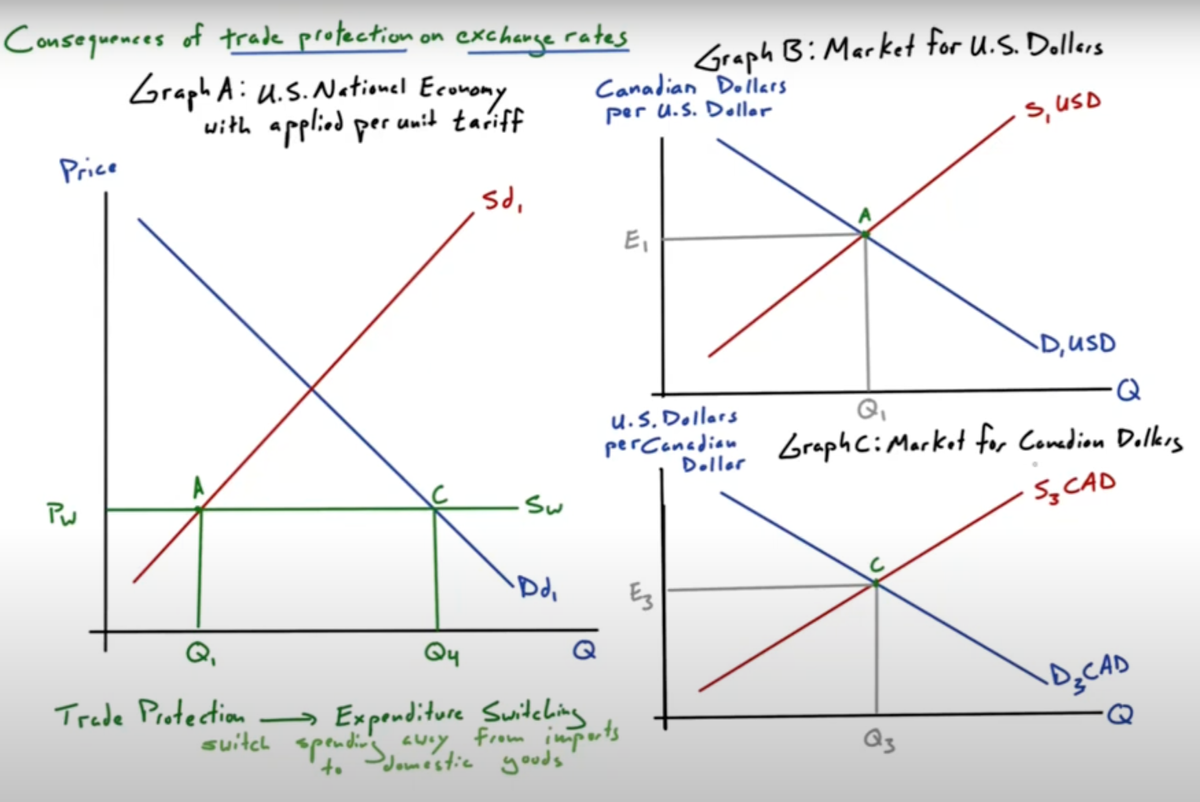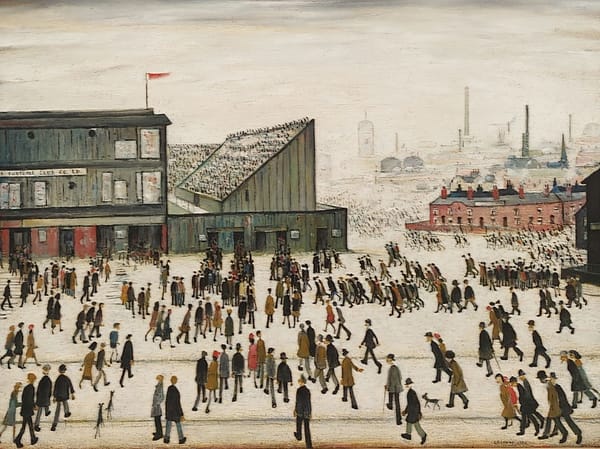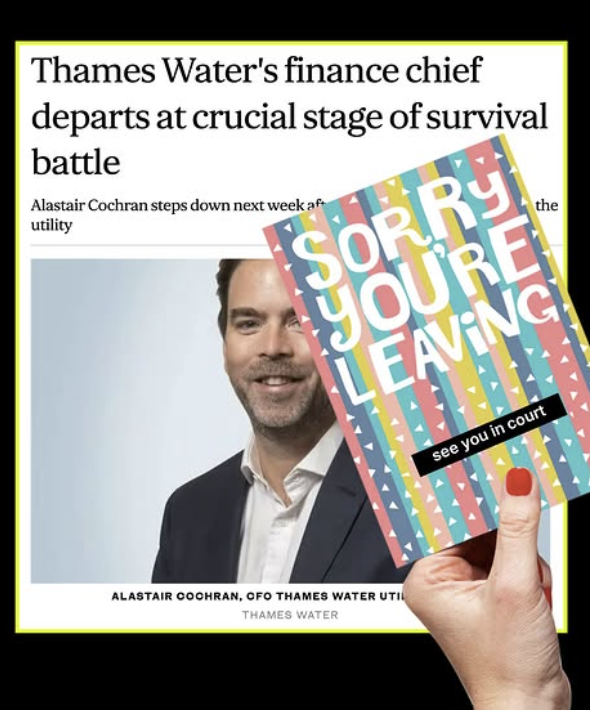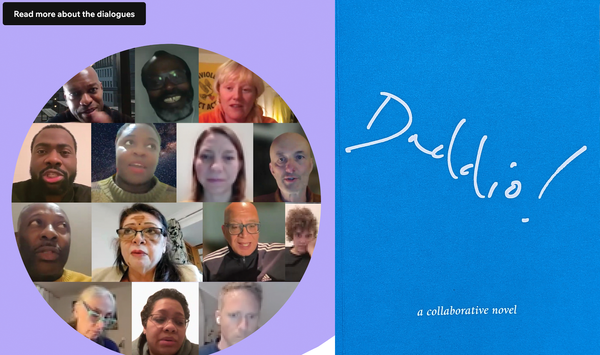Trump’s Tariffs on the X-Y Axis of Evil
Our friend and collaborator David Bent, founder of Atelier of What’s Next, dismayed like many with Trump’s terrible mathematics and with the commentariat’s forgetfulness of the wider agenda, weighs in with some sound algebra of his own.

As the Trump Administration acts like a bull in a china shop that is about to close, I am hearing people murmuring that maybe this is a good thing. Won’t it put a stop to the status quo, which is environmentally destructive, and socially extractive?
The argument goes: we need vibrant local economies; and we need degrowth to bring human society back within planetary limits. Tariffs are a route to that. So, a good thing, right?
With the deep and justified frustration felt as mainstream politics keeps on failing us, it is easy to fall into saying ‘any change is good change’. But we need to give ourselves a moment’s pause, to check.
At an abstract level, the argument is:
(1) X is bad.
(2) Action Y gets rid of X.
(3) Therefore Y is good.
We need to be careful on that last step (3). We need to check if we are judging the action Y with the same criteria as the starting situation X. It’s worth remembering: The process you use to get to the future is the future you get.
So: the current geo-political-economic status quo is bad because of environmental destruction and social extraction. The Trump tariffs rip up at least some important parts of the status quo. Let’s consider the consequences of the Trump Administration’s tariffs, and the wider approach of which it is part, using the same criteria of environmental destruction and social extraction.
Environmental effect
The net environment effect depends on why something was being made where it was. Yes, transport impacts of the trade reduce. But what new impacts are created?
That will depend on the new production. Specifically on aluminium, Paul Krugman makes the point here: “Why does Canada produce so much aluminum? Because aluminum smelting uses a lot of electricity, and Canada has cheap hydropower.”
Any aluminium made in the US is likely to be from fossil fuel-based energy. This will vastly outweigh any benefits from avoided transport emissions.
More generally, the Trump Administration is getting rid of all kinds of environmental regulations. There has to be a strong presumption that any new production in the US will not take any kind of care on extraction of natural resources, greenhouse gas emissions or pollution.
Social effects
We can know with high certainty that the tariffs make stuff more expensive in at least the short-term. Anyone already struggling will struggle more. A lot of the commentary on why Trump was elected was that he was part of a world-wide trend of people voting out incumbents who were blamed for inflation. So, we know pretty well that US voters don’t want stuff to get more expensive.
The tariffs have ramifications all throughout the supply chain, including on American jobs in steelmaking. Noah Smith quotes this newspaper story “More than 600 Iron Range steelworkers will be out of a job as mines that supply the struggling auto industry go offline… Cleveland-Cliffs will temporarily idle two Minnesota operations… The Ohio-based company, North America’s largest producer of flat-rolled steel, has notified the state of the upcoming layoffs.”
Perhaps tariffs will bring well-paid, secure manufacturing jobs back to the US? Trump now says he thinks there will be pain in the short-term (“medicine”), and then gain in the long-term. (During the election he said he’d solve everything on Day 1 without pain.)
This was an approach used by countries in the 1950s called import substitution. The evidence is that it rarely worked in the past. No one, apart from the people in Trump’s inner circle, agree with him. And sometimes not even them – see here.
Plus, the tariffs push us towards tariff wars, in which all of these effects play out not just in the US but around the world. Economically, everyone gets higher inflation, a large cost of living crisis, jobs put at risk in the short-term, for extremely uncertain benefits in the medium term.
Maybe in the medium term, countries turn towards more self-sufficiency? Maybe, but now we’re in a context where conflict is the norm, and the strongest countries can act arbitrarily. Not a strong basis for peace, prosperity or investment in circular economies.
In short, it is very hard to show that arbitrarily-imposed tariffs will improve on the status quo on either environmental or social criteria. More likely, they will make things worse.
Wider Approach
But the tariffs don’t stand alone. They are part of a wider approach by the Trump Administration. For these purposes, Trump is not the guiding intent. He is the front man to a group of people who planned what they wanted to achieve in a second Trump term.
Key among them is Russell Vought, the head of the US Office of Management and Budget. Andrew Curry has done us all a service by summarising what is known about Vought’s writings, as a window into the intentions of the people in positions of power in the Trump Administration.
Drawing from that, Vought believes America went wrong when the progressive movement under the leadership of Woodrow Wilson figured out how to “radically pervert” the constitution without having to officially amend it.
The reference to Wilson is a code that invokes the political thinking of Leo Strauss. His followers are obsessed with the Founding – and the idea that America is good because the Founding Fathers based the country on certain natural rights and timeless laws of nature, enshrining these eternal laws and morals in the country’s founding documents.
Progressive ideas, therefore, by adjusting to social change, are alienating people — Americans — from these timeless laws of nature. In this worldview, progressives have spent a hundred years capturing the state. Power is now in the hands of the agencies, the bureaucrats, the civil servants. He believes that “the hour is late, and time is of the essence.” The Constitution has already been so subverted that it is, in effect, necessary to ignore the Constitution in order to return to it.
My own thinking goes to what the US was like, when those ‘natural rights’ were in place without constraint. Consider the 1880s-1920s:
- Oligopolists controlled key industries (J P Morgan, J D Rockefeller) in the Robber Baron age.
- Brutal suppression of unions and minorities, including Jim Crow in the South.
- Women (especially working class women) were restricted to traditional roles.
- Reckless use of environment and labour (including child labour, which Florida is attempting to bring back).
- Destruction of nature and pollution either ignored or seen as what you do to succeed.
- US sought to dominate other nations, acting with impunity in its hemisphere (Phillipines, Hawai’i).
What kind of US do we think would emerge if the Trump Administration is successful in going back to the ‘natural rights and timeless laws of nature’, as understood by the Founding Fathers in 1780s?
One orientated towards deliberate change in the economy so there are vast reductions of environmental impact while still ensuring everyone has the capabilities they need for their version of a good life? Seems… unlikely to me.
Instead, more likely is an attitude that all growth is good growth, all of nature is a thing to be used, people too, and any damage along the way is the price to be paid for strength.
In which case, the Trump Administration path, including their use of tariffs, takes us to a brutalised world of international competition and local authoritarianism.
Any and every resource that can be used to win that competition will be used. Any part of nature that can help the US win will be treated as a strategic resource that can and should be used. Grabbing other strategic resources (for instance, critical minerals in Greenland or Ukraine) will be justified. People will also be treated as resources that should be used to win.
If you think the form of capitalism we have had for the last few decades was bad – hyper-globalised, hyper-financialised – then I agree.
But, if the Trump Administration succeeds, there will be no rules, no constraint, no norms which they are willing to keep to. Everything, every part of nature, every person outside the inner circle, will be treated as a resource to use in order to dominate, nationally and internationally.
If the Trump Administration succeeds in their approach, then it will massively increase the environmental and social extraction, compared even to our deeply, deeply flawed status quo.
Drawing it all together
Our current economic and geopolitical system is deeply, deeply flawed. But that does not mean every or any way of ripping it up is a good thing.
To go back to the most abstract version of the argument:
(1) X is bad.
(2) Action Y gets rid of X.
(3) But that does not automatically mean that Y is good.
It’s worth restating: The process you use to get to the future is the future you get. Trump lying and acting vindictively and without constraints – that leads to a brutal future.
On how we respond, personally, I am still working through what I can be and do. My instinct is that it will be about: generosity and tolerance; meeting people where they are and giving them agency in their lives; and, creating a sense of security through renewal (rather than by treating others as enemies to dominate).
Others will have other ideas. Now is the time to gather and experiment together, oriented towards a future of care and freedom.
Read more from David Bent at Atelier of What’s Next or connect with him on LinkedIn.
(The “axis of evil” was used by George W. Bush to identify American enemies in the lead up to the invasion of Iraq in 2003.)





